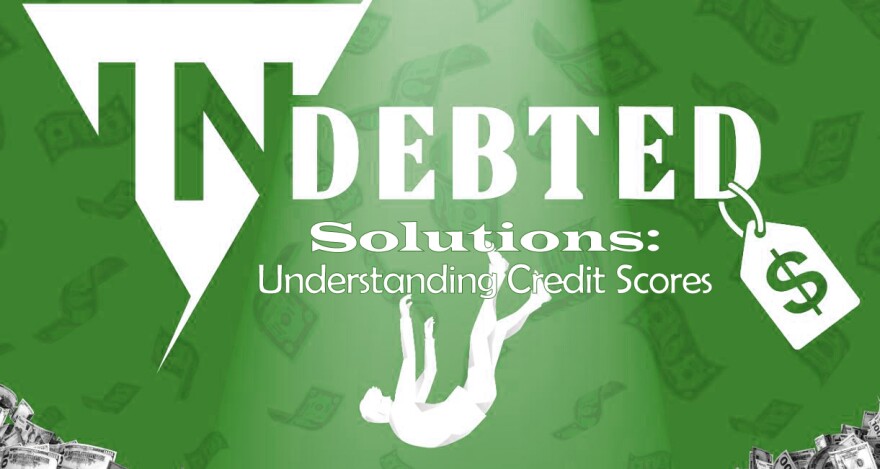Your credit score affects just about everything that involves your money, so it’s pretty important to understand some things about it.
Like, for example, what it is.
The Consumer Protection Finance Bureau (CFPB) defines credit score (i.e., FICO® score – more on that in a moment) as: “A prediction of your credit behavior, such as how likely you are to pay a loan back on time, based on information from your credit reports."
There’s a whole lot of stuff going on in those 26 words.
Landlords, car dealers, employers, credit card lenders, and mortgagers will look at your credit score whenever you’re trying to conduct some kind of business with them, essentially to see if you are responsible with your money. If there is a record of late payments or defaults in your financial history, or if you have numerous accounts open with banks, lenders, and some merchants, your credit score will suffer – as might your chances of getting a single-digit interest rate on a loan, a low APR on a credit card, a decent apartment with reasonable rent, or even a job.
So yes, it behooves you to nurture your credit score as best you can.
What’s up with this FICO® stuff?
FICO® is an acronym for Fair, Isaac & Co., a software firm that measures consumer debt and credit by complicated metrics and arrives at a three-digit number that governs how easily you can live your adult life.
There are six categories of FICO® scores, ranging from “very poor” to “exceptional.” Very poor is a credit score below 579; exceptional is a credit score above 800.
Statistically, most people fall in the “good range,” between 630 and 739. South Carolina’s statewide average credit score over the past few years has hovered around the 690 mark – which is good, but not by a lot.
The lower your credit score, the more likely you will have:
- less access to good loans with reasonable rates (meaning you can’t borrow as much and have to pay back a lot more for what you can borrow)
- to turn to alternative loan products like payday or auto title loans that can be difficult to escape
- higher insurance premiums
- worse mortgage terms (or mortgage denial)
- to pay security deposits out of pocket for utilities
- stiffer competition for apartments (because while not all landlords run credit checks, the ones who do will most likely rent to someone with better credit), or
- trouble starting or securing loans/investments for a business
As Bankrate succinctly puts it: “The effects of having a low credit score can reach fairly far and wide.”
Good news: Bad credit is repairable
As daunting as a low credit score can be, raising your FICO® score is not complicated. It’s not easy, per se — it takes patience and discipline — but it’s not complicated.
- The simplest and most influential step you can take, according to the credit bureau Experian, is to pay your bills on time, as often as you’re able.
- The second-most influential factor in repairing your credit score is not to overleverage your credit. According to Experian, you should try to use “no more than 30 percent of your total credit card borrowing limit.”
- That said, not having enough credit activated can be a problem too. “It's not even just about your credit score” says Bailey Parker of the South Carolina Department of Consumer Affairs. “You could have a really incredible credit score, but you don't have a long history or you don't have a variety of credit on your history and that can impact you negatively.”
- Credit scores improve faster when you have a fixed payment account (like a mortgage) and a revolving credit account (like a credit card). The first to show that you can be trusted with a large loan with regular fixed payments and the second to show you can carry a fluctuating balance, according to Experian.
- Paying off debt that’s in collections, though not as easy as it sounds (after all, if you could pay off a bill, it might not be in collections in the first place), could help unclutter your credit report and show you’re able to settle your bills.
One thing to beware of is that whenever you open a new account, any check on your credit score will actually cause the score to drop a little. The remedy: A few on-time payments will have your credit score on the rise soon.
By the way, no one starts out with excellent credit. Not having any credit history can keep your scores low, simply because there is no record of how well you can manage your bills and payments. Which means that paying cash for everything might be keeping you out of debt, but considering you need to show how well you can manage your debt, having no debt won’t actually do you any favors.
Renters: Here’s one more thing you can do
If you rent your residence, you can give your credit score an additional boost by asking your landlord to report your rent payments to the three major credit bureaus (Experian, Equifax, and TransUnion).
“Rent payments aren’t traditionally part of your credit history, but you could ask your landlord or property management company to start reporting them,” writes Louis DiNicola for Clear Point. “Once the rent payments are added to your credit report, some credit-scoring models will take them into account when calculating your score.”
And here’s a handy guide on how to do that from Nerdwallet.
For everyone, it’s good practice to check in on your credit report once a year. You’re entitled to see it for free. The CFPB shows you how to do that: here.



